Atonement is often described as the closing of chapters or the completion of a cycle, when the story comes to an end. But follow along with Wayne Karlin’s story of atonement and see that it is, in fact, the opposite in its ability to open new doors and invite opportunities for more adventures.

On the day before Yom Kippur a Jew will visit those he has wronged to set things right. Vietnamese do something like that just before Tet.
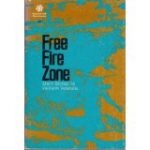
Once in Ha Noi a group summoned me and a friend to settle our differences before the new year. We agreed to forget about the whole thing.
At this point I could not tell you what it was all about. My friend is dead.
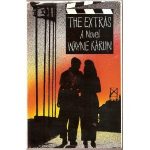
Some people keep atoning long after they have anything left to apologize for. They insist upon remembering.

Wayne Karlin patrolled the edge of an airbase as an infantryman. Then he operated a machine gun from a helicopter against the People’s Army crossing into the Republic of Viet Nam.
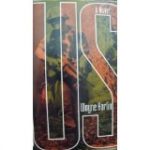
Wayne paid up when he returned home as a sergeant and resisted the war. But he had already taken on the work of atonement and was off to Israel.
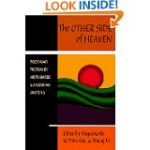
As a college student and stringer he witnessed, what do you know, the Yom Kippur war. He met his wife, daughter of the ambassador of Burma, and returned to America.
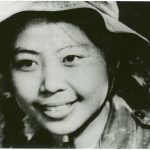
There are about as many Jews here as over there. America and Israel both are remarkable among nations in sin and redemption.

Back home, Wayne edited a collection of fiction by his brother veterans. He settled to his own work in Maryland, the border state where spectacle lynchings persisted into my father’s teen-age years.
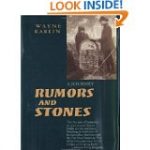
His first novels Crossover and Lost Armies came out when Americans started talking again about whatever could we have been doing in Viet Nam. His third novel The Extras visits the predicament of Israel.
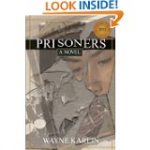
The year US came out Wayne visited the William Joiner Center for the Study of War and Social Consequences and met writers from the People’s Army. With Le Minh Khue and with a veteran of the Republic of Viet Nam he edited the fiction collection The Other Side of Heaven.
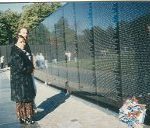
He journeyed back to his mother’s Poland where there are few Jews any more. Cleaning the graves is something Vietnamese do before a large undertaking.
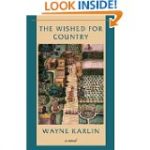
In his book about his mother he also tells about meeting Khue and the writer Ho Anh Thai, who just missed the war with Saigon but mobilized for the one right after that with China and the Khmer Rouge, two other allies of the United States. Wayne and Khue and Thai set to publishing in English the literary fiction of contemporary Ha Noi.

Khue served as editor for that city’s most distinguished literary publisher. Thai, leading writer of his generation since he was a soldier, has served as president of the Ha Noi Writers Association.
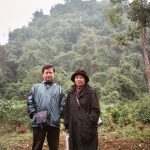
Wayne mobilized a network of translators to bring out a collection of Khue’s own stories. He worked directly with Thai, who speaks lovely English but does not write it professionally, to bring out his Behind the Red Mist.

The work between nations and languages affected Wayne’s own fiction. Prisoners concerns a young Maryland woman with a black dad and a Vietnamese mom, among people who recall our civil war as well as the one over there.
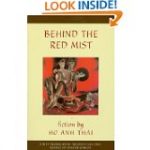
The Wished For Country tells another Eastern Shore story, about whites, Indians and blacks who ran away together from the colonies. Meanwhile, Wayne and his collaborators pounded out fiction from Viet Nam.
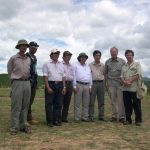
Against the Flood, Past Continuous, Crossing the River, all are contemporary novels of the recent past in Viet Nam. A second anthology, Love After War, the stories Cemetery of Chua Village and the novel An Insignificant Family all make the same point, that the dead aren’t dead.

One of the dead reached out to Wayne. He was busy writing and acting in a war movie produced in Viet Nam and writing a book about that.
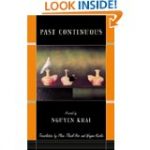
Hoang Ngoc Dam wanted him to help an American return the diary he had preserved after shooting Dam dead. Another dead Vietnamese, the physician Dang Thuy Tram, had already seen her diary not only returned to her family but published to acclaim.
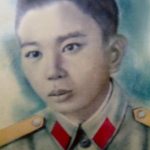
The anthropologist Heonik Kwon has written about the active life of the Vietnamese war dead. Wayne’s Wandering Souls has added to this literature.
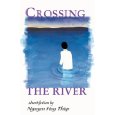
It has been published again in Vietnamese in Viet Nam. Wayne has already finished the next novel, Dead General, about our new wars in his old part of the country.
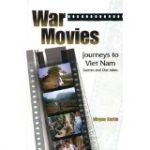
Wayne’s old unit has built schools in Quang Tri where they once served. Students from St. Mary’s where Wayne used to teach have visited.
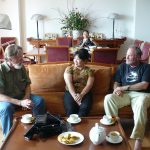
Yom Kippur began at sundown October 7 this year and ended twenty-four hours later. It is the rite of a people determined to honor an agreement.
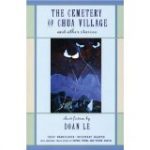
I am stretching a point to mark Wayne Karlin’s achievement on Yom Kippur. He has pitched his tent with the United States, especially the South, and with Viet Nam, especially the North.
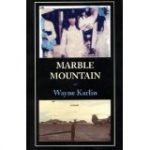
The man is working with a Vietnamese spirit. He is working not only with Vietnamese but on debts among them.

They are not Jews or Americans.
Nothing good can come of soft thinking about hard matters.
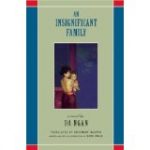
No one may atone for guilt he has not earned.
Only those who shoulder their own responsibility may benefit us all.
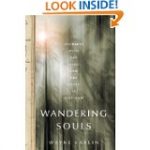
“In the tribunal of Heaven and the tribunal of earth, by the permission of God and by the permission of this holy congregation, we hold it lawful to pray with transgressors.”
“May all the people of Israel be forgiven, including all the strangers who live in their midst, for all the people are in fault.”
– Dan Duffy, Editor of Viet Nam Literature Project, where this post first appeared
Please take the time to rate this post (above) and share it (below). Ratings for top posts are listed on the sidebar. Sharing (on email, Facebook, etc.) helps spread the word about diaCRITICS. And join the conversation and leave a comment! Have you ever taken a journey of atonement? How did it change you?


